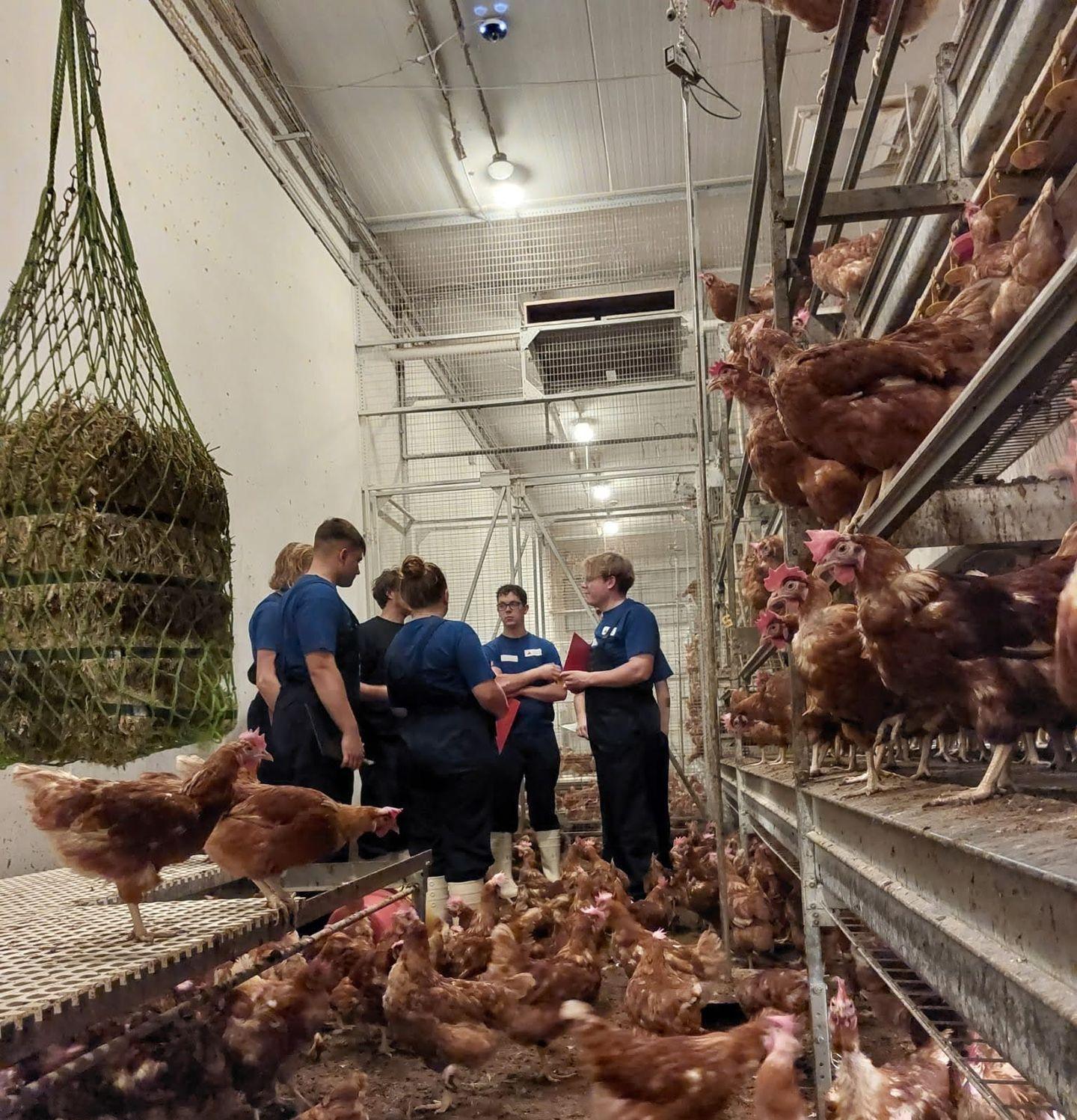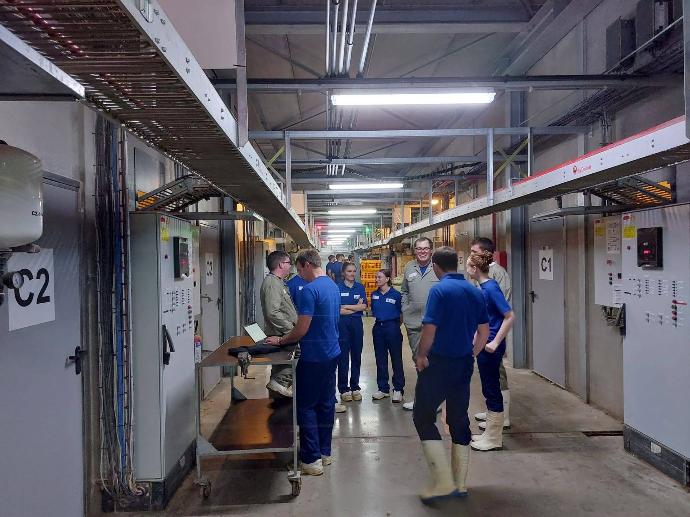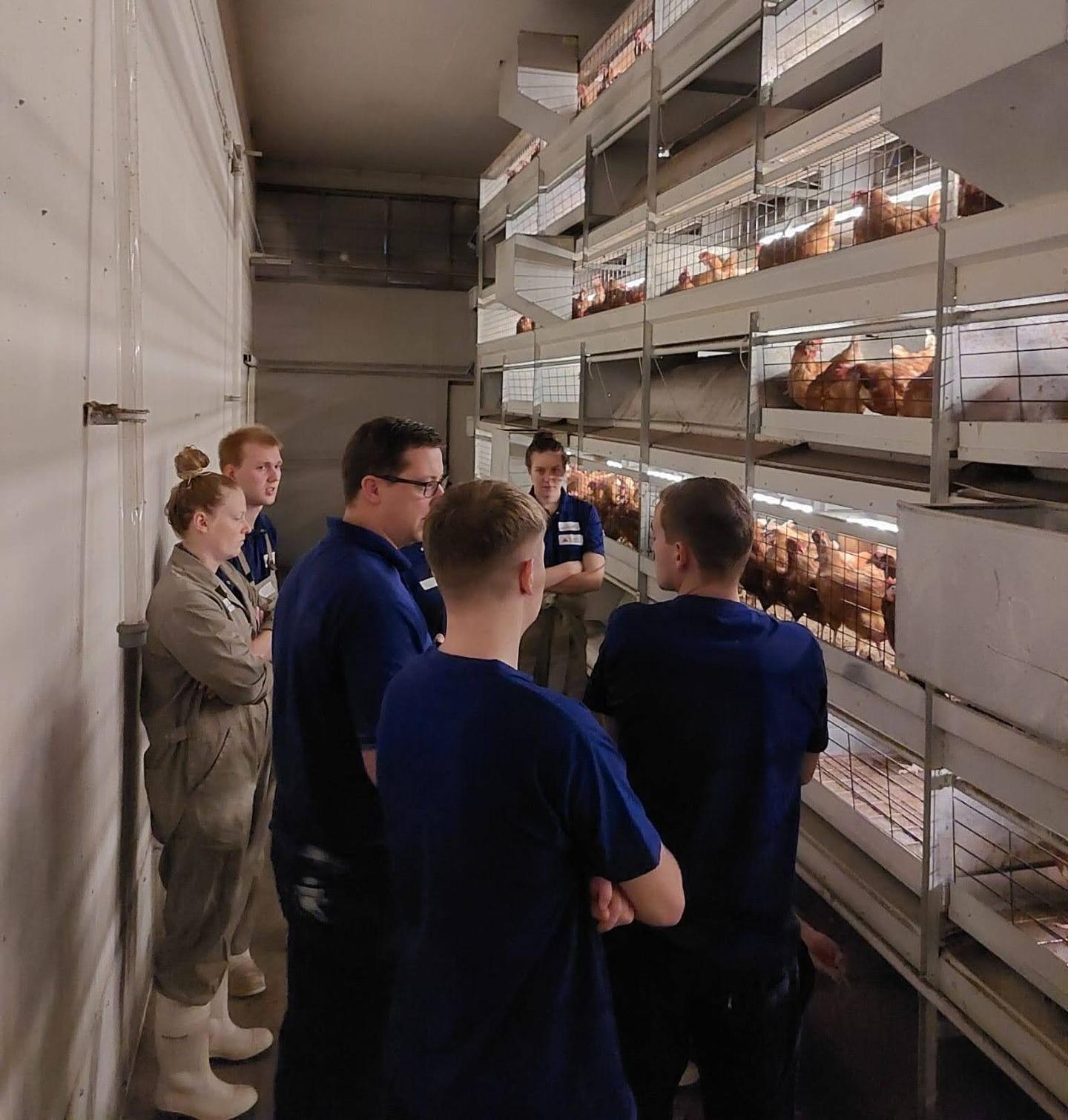Our project partner Hochschüle Osnabrück organised in October 2024 a training week for your agricultural students. A group of 22 German students accompanied Prof. Guido Recke and Alexander Kühnemund on their study trip to Belgium and the Netherlands, where they, amongst other things, visited project partners Vencomatic Group (NL) and the Experimental Poultry Center (BE).
At the Experimental Poultry Center, the students were introduced to the laying hen facilities. In the format of three separate workshops, the students were able to gain valuable insights in three current challenges of laying hen farming.

Hen welfare monitoring
The students received an hands-on experience in the evaluation of hen welfare monitoring. During the workshop, they discussed key hen welfare indicators, inter-observer reliability of manual assessments and (the future of) automated hen welfare monitoring.

Hen longevity
The sustainable improvement of hen longevity is the biggest driver in the OMELETTE project. In this workshop, the focus lied on the benefits, costs and perception of hen longevity. Consumer and farmer perception on hen longevity might differ, and it is crucial to understand both viewpoints in order to reach a sustainable and resilient egg production in Northwest Europe.

Alternative hen housing
The laying hen sector in Northwest Europe is facing the ban of enriched cage housing for hens. In future, alternative housing of these hens is needed. In this workshop, the students were introduced to four different housing systems, and discussed the benefits and drawbacks in terms of animal health, welfare, performance and emissions.